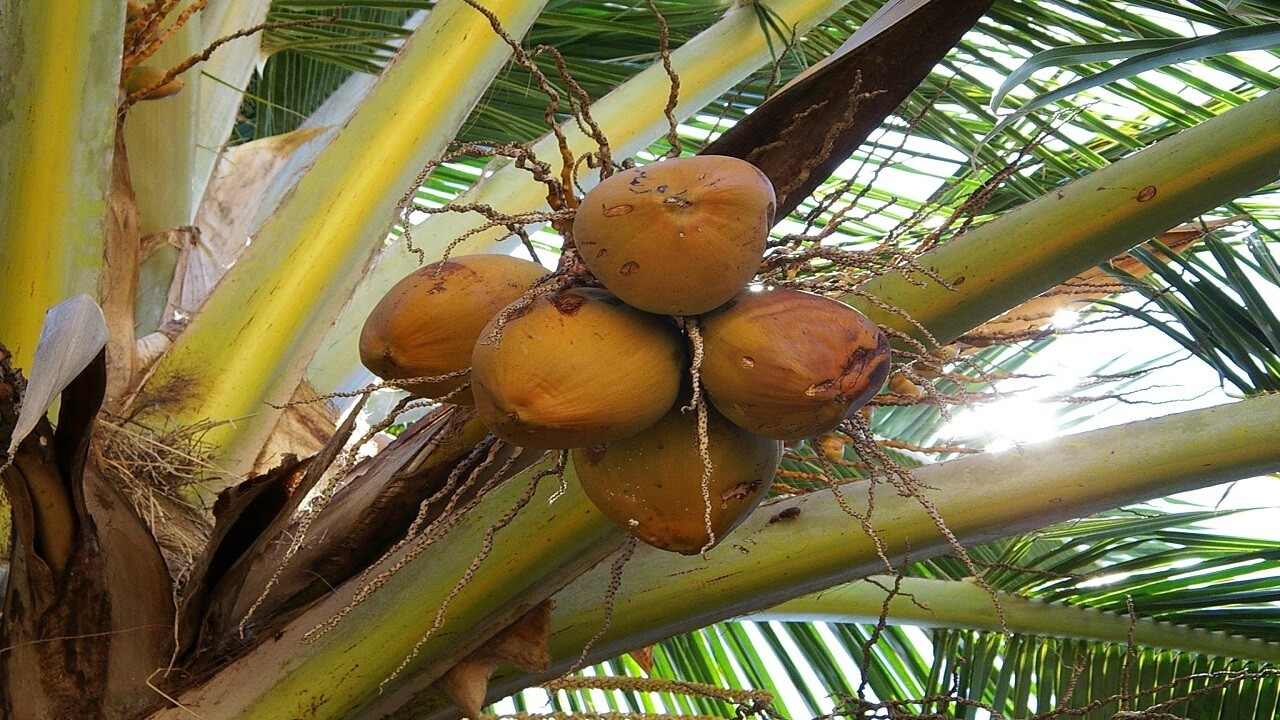
Business Opportunities in Coconut Value Chain
May 30, 2018, 5:21 pm
Coconut is one of the greatest gifts of nature to man because it produces a wide range of products.
Coconut belongs to the Arecaceae family and is the only species of the genus Cocos. Agriculturists classify coconut as a drupe which is a fruit, a nut and a seed in one. Commonly referred to as the “tree of life”, coconut has a wide range of uses.
Business Opportunities in Coconut Value Chain
The coir, a natural elastic fiber taken from coconut husks, can be used to make floor mats, brushes, ropes and strings. Coconut leaves can be used to make brooms, baskets, roofing thatches and temporary sheds. Coconut lumber is used for building houses and furniture. Fuel and charcoal can be produced from husks and coconut shells. Since 2007, over 60 million metric tons of coconuts have been produced worldwide annually.
A wide range of coconut products are internationally traded. There are more than 50 unprocessed, semiprocessed or processed coconut products entering the international markets in small and big quantities. For example, coconut water has gained popularity over the last few years—not only as refreshment but also as a sports drink. Coconut water is by far the leading plant-based water available for sale worldwide. In 2016, coconut water accounted for 96% of the volume share in the global sale of all plant-based water with over 700 million liters sold and with a market value of about $2.2 billion. Aside from the well-know exports of copra and coconut oil, other exports which have a significant volume are desiccated coconut, copra meal, cocochemicals (fatty acids, fatty alcohol, methyl ether), shell charcoal and activated carbon, fibre products, coconut cream, milk, flour and nata de coco.
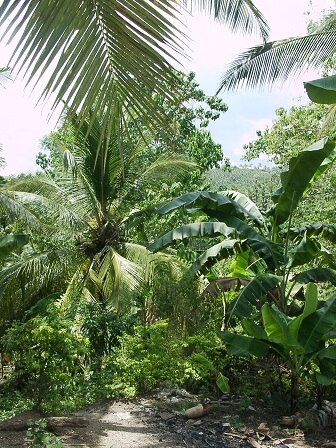
Coconut grows naturally along coastal terrains and is cultivated in over 90 countries of the world such as Nigeria, India, Indonesia, Philippines, Sri-Lanka etc.
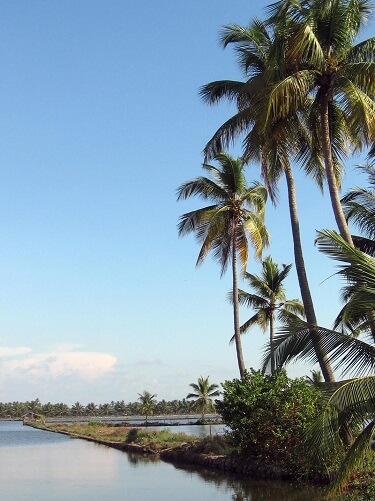
In Nigeria, Lagos State is naturally blessed with a vast coconut belt made up of 135km2 (135,000 hectares) coastal line. The table below shows the land coverage and utilization of coconut in Lagos state:
| LGA | Total Land Area (km2) | Estimated Area of the Coast Line (km2) | Estimated Area of the Islands (km2) | Estimated Area with Potential for Cultivation (HA) |
| Ibeju Lekki & Epe LGAs | 1,640 | 85.28 | 328 | 27,100 |
| Eti-Osa LGA | 192 | 9.98 | 19.20 | 1,203 |
| Ojo, Amuwo-Odofin, Apapa & Badagry LGAs | 761 | 39.57 | 355.99 | 29,429 |
| GRAND TOTOAL | 2,593 | 134.83 | 703.19 | 58,132 |
Investment Opportunities in Coconut
In Nigeria, coconut has the potential of generating over N10 billion annually for farmers and agribusiness entrepreneurs. For example, Lagos state has the potential for the production of more than 10 million coconut trees with annual production of over 1 billion husked nuts worth over N45 billion.
Currently, the production output of dehusked nuts in Nigeria is about 267,520 metric tonnes which is used in the production of less than 1,500 metric tonnes of coconut oil. According to the United States Department of Agriculture, Nigeria coconut oil domestic consumption is about 7,000 metric tonnes thus leaving a supply gap of about 5,500 metric tonnes per annum.
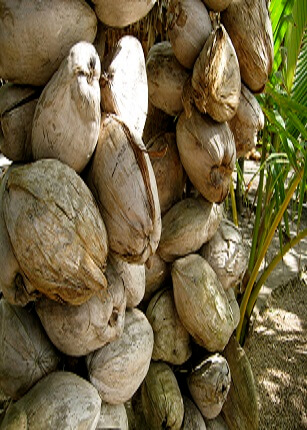
Coconut products are used by many sectors and industries. Some of the industries or sectors where coconut products are used are Pharmaceuticals, Cosmetics, Beverage etc. Coconuts are also used in the preparation of delicacies like chocolate, crepes, candy etc.

Due to the shortage of coconut products in Nigeria, the sectors and industries which require coconut products for their processes are looking outside Nigeria to meet their need. For example,the sugar industry in Nigeria demands about 2,000 metric tonnes of virgin coconut oil annually for the production of sugar. The present National Output of virgin coconut oil in Nigeria cannot meet up with the need of the sugar industry alone!
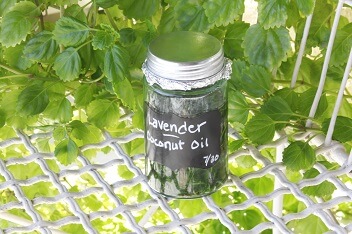
The industrial supply gap of over 5,000 metric tonnes of virgin coconut oil presents an opportunity for smart farmers and agribusiness entrepreneurs to take advantage of.
Derivatives of Coconut
The coconut tree is arguably the most useful tree in the world. Nearly every part of the coconut tree can be used to produce a valuable product! The parts of the coconut tree and the products they generate are listed below:
1. Meat
It is used in the production of candies (chukchuk, gurundi), doughnut, soup, dessicated coconut, oil lard, copra cake, toothpaste jam and milk
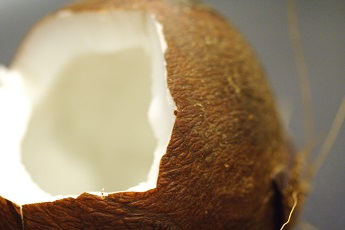
2. Coconut Oil
It is used in the production of edible cooking oil, industrial oil, hair oil, massage oil and fuel extender illuminant
3. Cocoshell
It is used in the production of tray, coffee pot, charcoal briquette, activated carbon charcoal, wood preservatives, lamp head etc.
4. Leaves
It is used in the production of bag, fan, hats, midrib broom, slippers, draperies, toothpicks, mat, hut roof etc
5. Husk
It is used in the production of mattress, coir fiber, bottle brush, rope, net, upholstery, fuel, soil conservator, mulch, rugs, geotextiles
6. Cocosheath
It is used in the production of bags, caps, slippers and helmet
7. Wood/Trunk
It is used in the production of roofing, shed/farm office, workshop buildings, rural bridges, floors, windows, furniture, floor tiles, pallets, handicrafts, tool handles, fuels, bannister etc.
8. Shell
It is used in the production of lampshade, wood preservatives, charcoal briquettes, tray, coffee, tray cups, buttons, shell powder etc.
9. Coconut Water
It is used in the production of toddy, vinegar, treacle, medicinal eye-drop etc.
10. Coir Dust
It is used in the production of coir dust, cake and insulators
11. Roots
It is used in the production of medicine, mulching and dye stuff
12. Leaf Midribs
It is used in the production of brooms, baskets, fish trays, toothpicks, tongue cleaner etc.
Coconut Value Chain Training
In order to help you learn more about the business opportunities in the coconut value chain and how you can take advantage of them, we have a coconut farming business plan and coconut processing video tutorials that will show you how to take advantage of the opportunities in the coconut value chain. Our coconut value chain training is focused on these 4 areas:
Coconut Farming
Coconut farming is a cash-tree that receives very little attention. Coconut has great adaptation and incredible plasticity features. It is an undemanding plant, it adapts to many soil types and climates. It resists bad weather conditions and produce continuously from the age of 4 or 7 years to 60 years. Coconut farming is a gold mine! Let me explain...
Let say you have 1 hectare of land and you plant 600 coconut trees on it. Depending on the specie of coconut you plant, by the third year, you can start harvesting a minimum of 100 coconuts per tree. On your 1 hectare of land you can produce 60,000 coconuts (600 trees X 100) every year. The minimum selling price of one coconut is N90, so your coconut plantation can generate a minimum of N5,400,000 every year for the next 50 years!
With our coconut farming business plan, you will learn:
1. Introduction to coconut farming
2. Cost of setting up a coconut plantation
3. Types of coconut cultivars and yield
4. 5-year profit projections for operating a coconut plantation
5. Analysis of the Nigerian and global coconut value chain industry
6. Marketing and distribution of coconut products
7. Different coconut products, their market and uses
And so much more!
Coconut Oil Production
Coconut oil is one of the leading products generated from coconut farming. If you don't have the land to plant coconuts, you can focus on processing coconuts into oil. Coconut oil production is also a very good business that generates over $3 billion annually. Two countries that export large amounts of coconut oil are Philippines (over 1 million tons) and Indonesia (over 0.8 million tons). Coconut oil is used in a lot of industries such as sugar production, cosmetics, confectionaries etc.
However, not all coconut oil are created the same. There are two types of coconut oil production: virgin coconut oil (VCO) and hot-press coconut oil. These two types of coconut have different properties and they are used by different industries or sectors. For example, virgin coconut oil is medicinal and can be eaten (it's used by the food industry) while hot-press coconut oil is used for cosmetics.
In our coconut processing video tutorials, you will learn:
1. Tools and equipment needed for coconut oil production
2. How to produce hot-press coconut oil
3. How to produce virgin coconut oil
4. Steps to take in order to avoid producing bad coconut oil
Coconut Flour Production
Coconut flour is also another product that can be made from coconuts. It's another good area in the coconut value chain to focus on if you don't have land for a coconut plantation or you aren't interested in coconut farming. Coconut flour is a very delicious and palatable food product. It can be used to bake pastries like cake, puff-puff, meat pies etc. It can also be used to as a meal, like semovita, samvita, wheat flour etc.
In our coconut processing video tutorials, you will learn:
1. Equipment and tools needed for coconut flour production
2. How to produce coconut flour
Coconut Milk Production
Coconut milk is another byproduct derived from coconut. Coconut milk is a milky-white liquid extracted from the grated pulp of mature coconuts. Coconut milk is very healthy and nutritious. It can be used for cooking soups, oatmeal etc. especially for people who are allergic to dairy milk. In our coconut processing video tutorials, we will show you how to produce coconut milk.
Our coconut farming business plan and coconut processing video tutorials will show you how to take advantage of the opportunities in the coconut value chain so you can start making money!
The first step to gaining access to our coconut processing video tutorials is by creating a free account on Agricdemy. Watch this video to see how to create a free account on Agricdemy.
After creating your free account, you will given access to watch some of our agribusiness video tutorials but to watch all our coconut processing video tutorials, you will need to upgrade your Agricdemy account by paying a subscription fee. Watch this video to see how to upgrade your Agricdemy account.
For more information on how to get our coconut farming business plan, send a mail to agsolutions@agricdemy.com
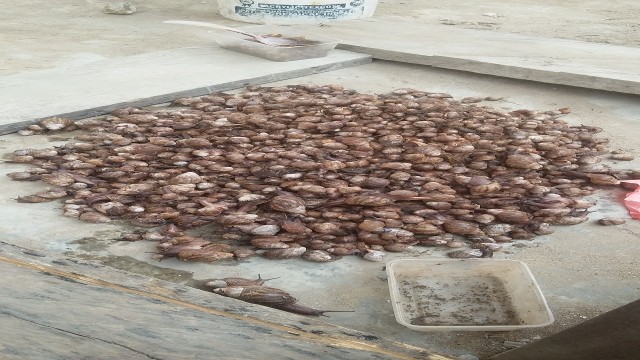
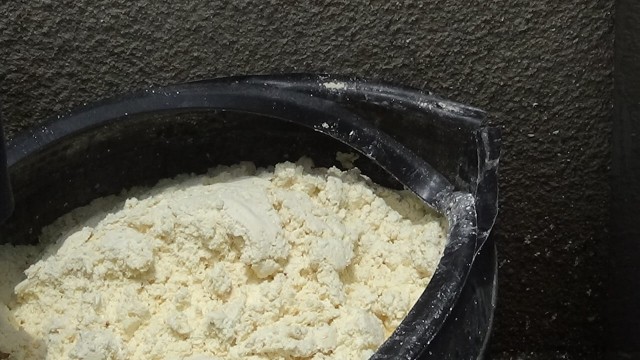
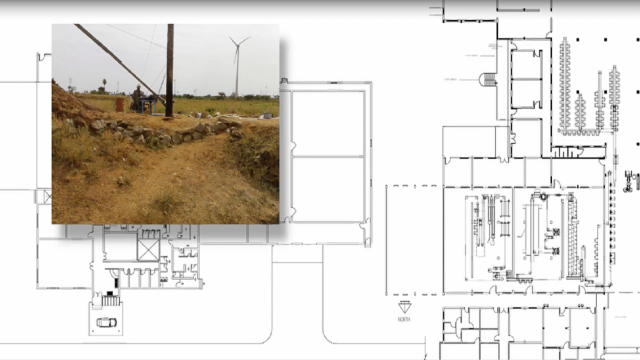
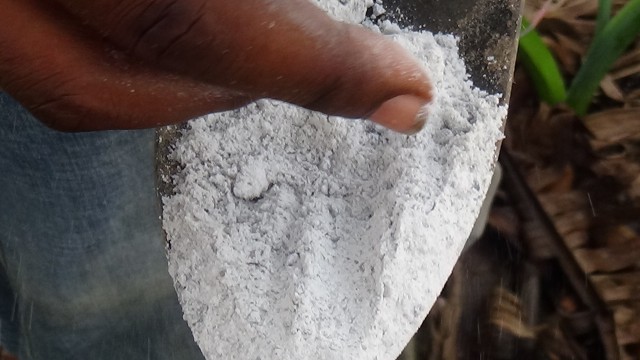
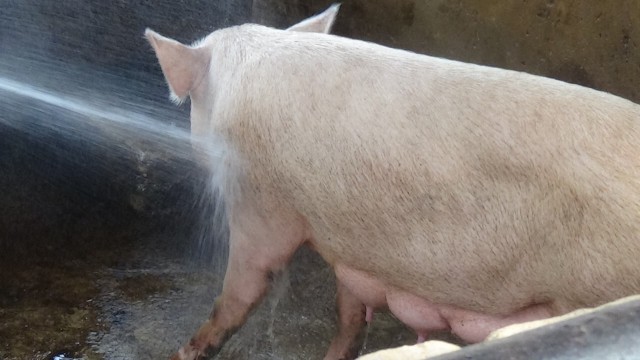
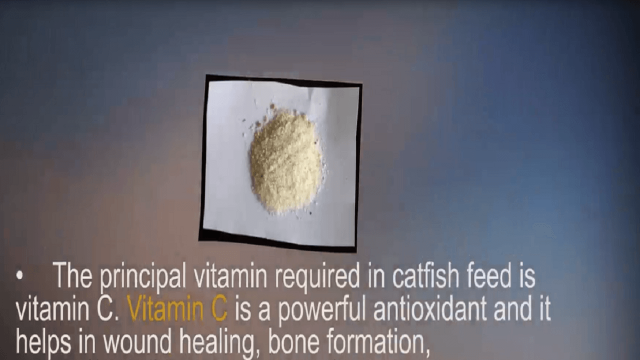
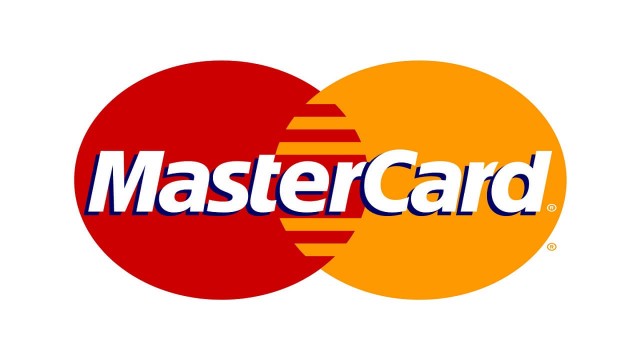
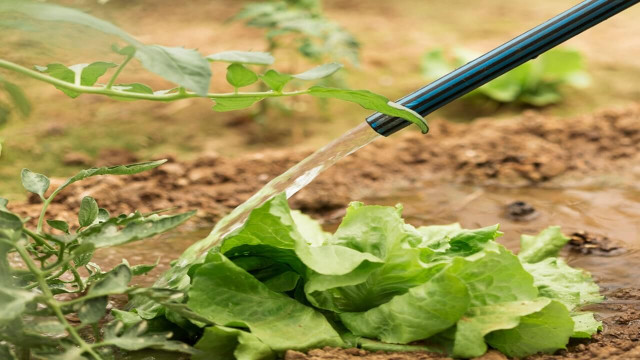
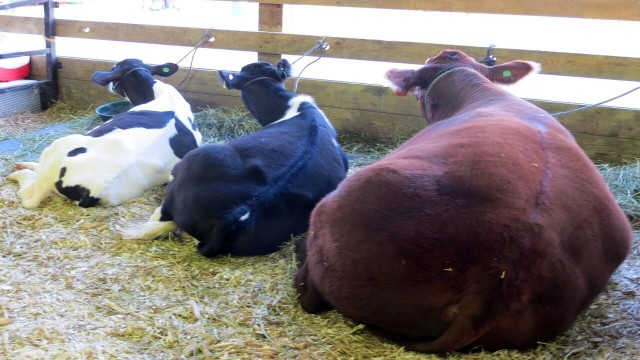
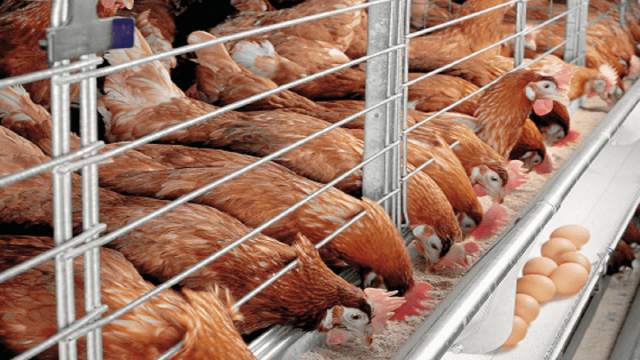
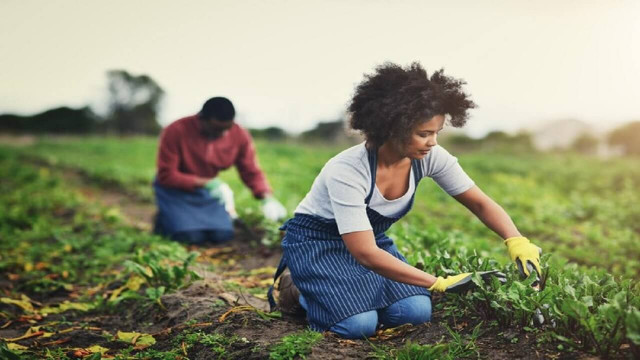
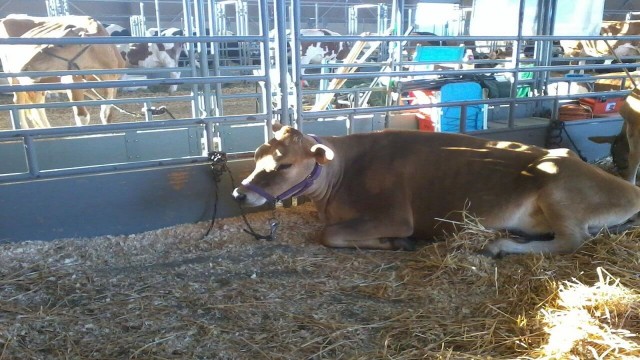
Share This Article: